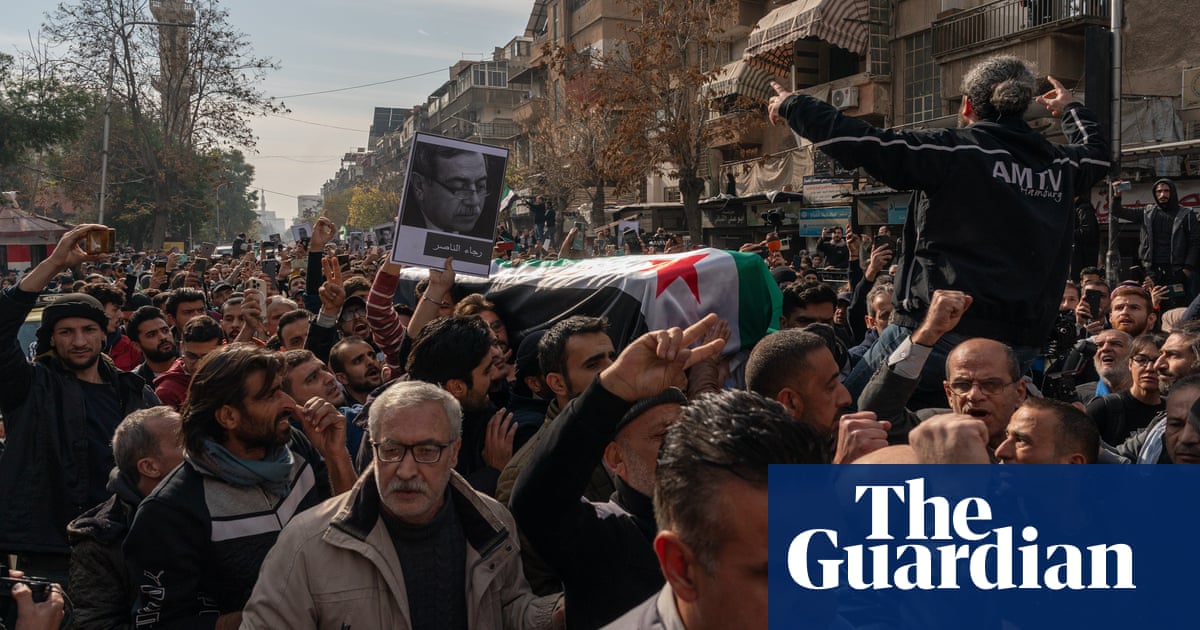The streets of Damascus have been filled with celebrations since Bashar al-Assad fled to Russia last Sunday in the face of an unexpected rebel offensive, ending more than 50 years of his family’s brutal rule over Syria. But at a public funeral for Mazen al-Hamadah – before his disappearance in 2020 one of the most vocal survivors of torture in the regime’s prisons system – the joy gave way to sorrow, as the country begins to grapple with the fact that many of the estimated 130,000 people missing may be lost forever.
Thousands of people flooded the streets on Thursday, following Hamadah’s body, wrapped in a traditional white shroud, as it was driven slowly from a hospital to the Abdulrahman Abu al Ouf mosque for funeral prayers. At a vigil afterwards in nearby al-Hijaz square, thousands of men, women and children cried and hugged each other, many carrying pictures of their own disappeared loved ones.
The initial euphoria of finding missing people alive after rebels broke down prison cell doors on their astonishing advance to the capital has faded; many anxious families have searched prisons and morgues, and combed through ransacked regime documents and records, and have found nothing. But even so, such a public outpouring of grief would have been unthinkable less than a week ago, when Syria was still a repressive police state.


